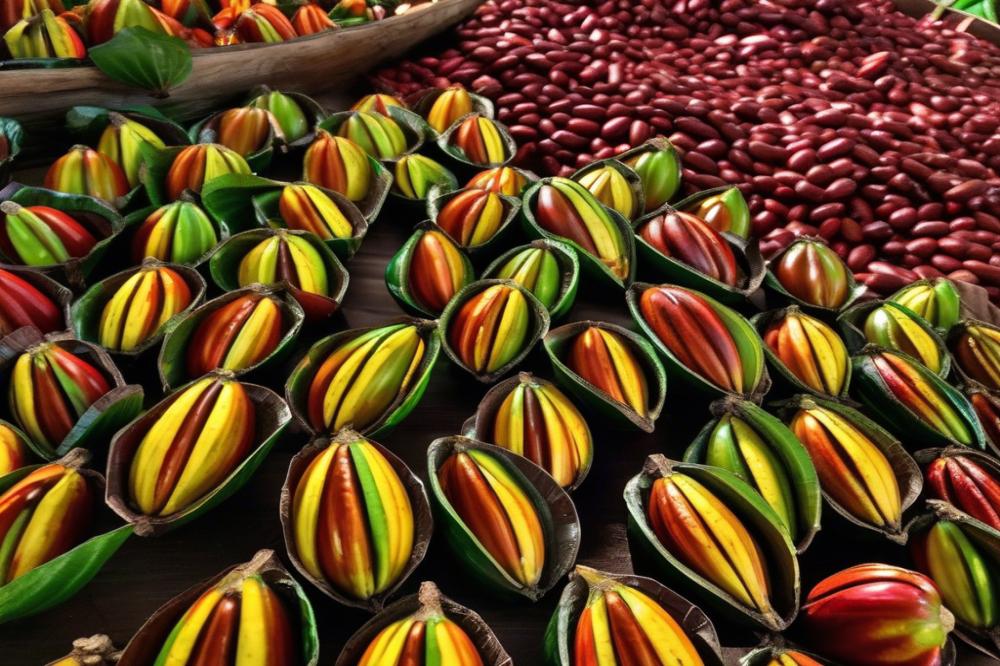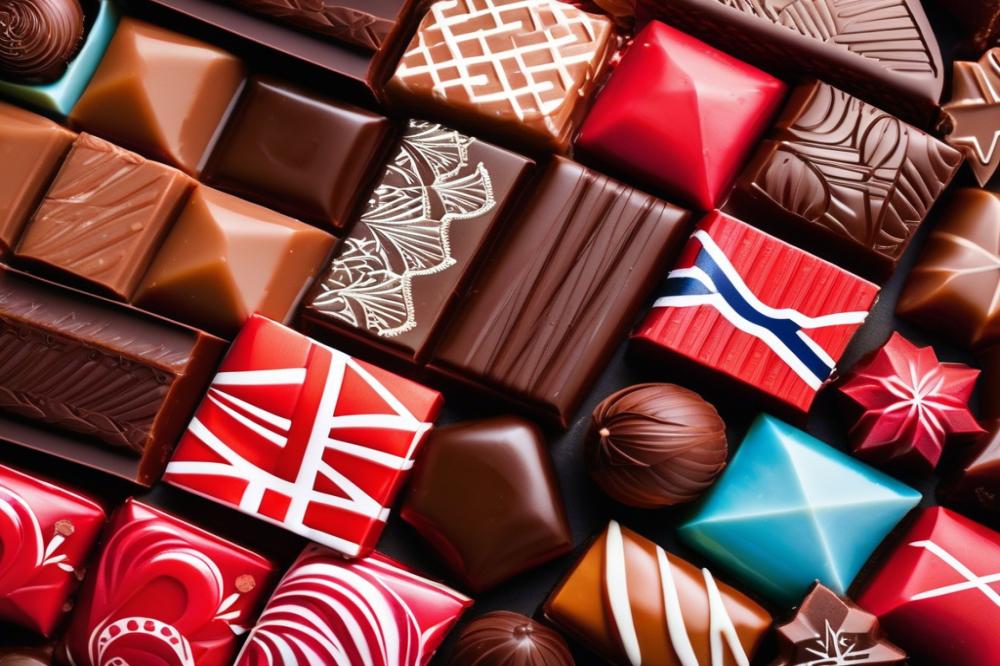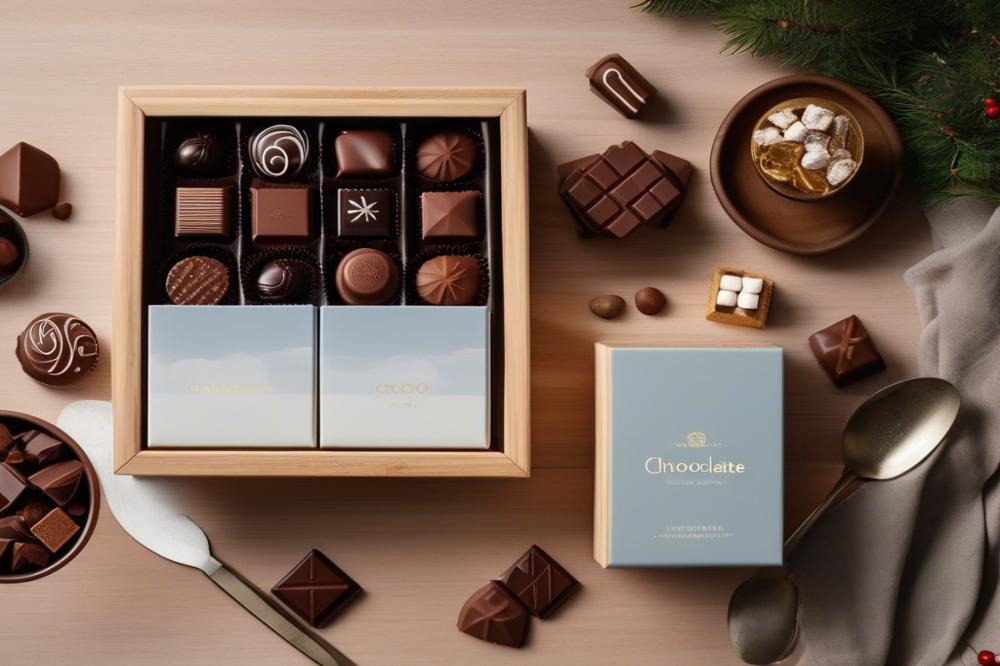Introduction
Ghana is a key player in the world of cocoa. Its chocolate is not only a delicious treat but also a symbol of the country’s rich agricultural traditions. Known for its high-quality cocoa beans, Ghana has a significant role in the global cocoa industry. Farmers often practice sustainable farming techniques that help preserve the land for future generations. This commitment to the earth reflects the values of Ghanaian culture.
The heritage of chocolate production in this country runs deep. Families have passed down methods for growing and harvesting cocoa for generations. These practices contribute to the exceptional taste profile of Ghanaian chocolate. Many local artisans create artisanal chocolate, using these traditional methods. This results in unique flavors that are distinct to the region.
With chocolate recipes rooted in history, the flavors of Ghanaian cocoa offer an exotic taste that captivates many. As conversations about fair trade continue, Ghana’s impact on the cocoa business becomes increasingly relevant. Shoppers around the globe seek out products that not only satisfy their sweet cravings but also support ethical practices. As discussions about sustainability gain momentum, Ghanaian chocolate remains a crucial part of the narrative.
Ultimately, the intersection of Ghanaian culture and chocolate production serves as a reminder of the intricate connections between food, heritage, and trade. The stories behind every cacao bean enrich our understanding of West Africa’s contributions to the world of chocolate. Celebrating these flavors allows us to appreciate the hard work of farmers and the joy of chocolate lovers everywhere.
The History of Cocoa in Ghana

Origin of Cocoa Farming in Ghana
Cocoa farming in Ghana began in the late 19th century. The crop was introduced around 1879 when Tetteh Quarshie brought seeds from the Fernando Po Island. Initially, cocoa was grown on a small scale. Local farmers quickly recognized its potential. The rich soil and favorable climate made it an ideal place for cocoa beans. Soon, cocoa became a staple in Ghanaian agriculture.
Historical Context of Ghana’s Cocoa Industry
As the years passed, the cocoa industry evolved significantly. By the early 20th century, Ghana was exporting cocoa on a large scale. The industry grew rapidly and contributed to the country’s economy. Cocoa became a symbol of national pride. Farmers adopted various cultivation techniques, which improved the quality of the beans. This led to Ghana’s reputation for producing high-quality cocoa. The country emerged as a key player in the global cocoa market.
Evolution into a Leading Nation in Cocoa Production
Today, Ghana stands as one of the top cocoa producers in the world. The commitment to sustainable farming practices has played a crucial role in this achievement. Fair trade initiatives allow farmers to earn fair wages for their efforts. Chocolate production has flourished, leading to the creation of artisanal chocolate brands. These brands often offer recipes that highlight the exotic taste of Ghanaian cocoa. The country’s chocolate has a rich taste profile that delights many. Ghana’s cocoa industry continues to reflect the heart of Ghanaian culture.
The Exotic Taste of Ghana chocolate

Ghanaian chocolate offers an exotic taste that captivates the senses. The flavor profile stands out with rich cocoa notes combined with subtle hints of fruity sweetness. Each bite unveils layers of flavor that reflect the careful craftsmanship involved in its production.
Several factors contribute to this exceptional taste. First, the soil in which cocoa beans grow plays a crucial role. Earth enriched with nutrients helps cultivate beans that are bursting with flavor. The humid climate in Ghana also enhances the growing process. Warm temperatures and regular rainfall create ideal conditions for cocoa trees, helping them flourish.
Cultivation methods used by farmers further influence the quality of the beans. Many cocoa farmers in Ghana practice sustainable farming techniques. These methods prioritize environmental health and support the local community. Fair trade practices ensure that farmers receive fair wages, which helps improve their lives and the quality of the product.
Artisanal chocolate makers are vital in showcasing the exotic taste of this chocolate. They emphasize traditional recipes passed down through generations. Their careful attention to detail during chocolate production highlights the flavors inherent in the beans. Each creation reflects Ghanaian culture, bringing the essence of the land to the chocolate lover’s palate.
By focusing on quality and flavor, these artisans elevate Ghanaian chocolate to new heights. Creative recipes combine local ingredients, pushing boundaries and introducing unique flavor combinations. The result is a chocolate experience that goes beyond mere sweetness, delighting those who seek the distinct allure of Ghana.
Cocoa Beans and Their Journey
Understanding the characteristics of Ghana cocoa beans requires appreciation of their origins. These beans are known for their rich flavor and distinct aroma. Farmers cultivate them in the lush, tropical climate of Ghana. The combination of rich soil and ample rainfall contributes to their unique taste profile. Many people find that the beans from this region produce some of the finest chocolate.
The processing of cocoa beans from farm to chocolate bar is a meticulous journey. After harvesting, the beans go through fermentation, which enhances their flavor. Next, drying takes place under the sun, reducing moisture and developing their color. The dried beans are then roasted, releasing a heavenly scent that signals the chocolate production process is nearing the end. After roasting, grinding the beans creates cocoa mass, which is a key ingredient in many chocolate recipes.
Ghana has taken significant steps towards sustainable farming practices. Many farmers participate in fair trade initiatives, which promote ethical treatment and better wages. These practices not only benefit the farmers but also improve the quality of the cocoa. High-quality beans produce richer flavor profiles in chocolate. Ghanaian culture emphasizes the importance of preserving the environment. This is reflected in the way farmers manage their cocoa farms, ensuring biodiversity and soil health.
Artisanal chocolate makers in Ghana often focus on these sustainable methods. By using high-quality cocoa, their products stand out in a crowded marketplace. The combination of traditional techniques and modern innovation brings out the exotic taste of Ghanaian chocolate. As consumers become more aware, the demand for ethically sourced chocolate continues to grow.
Ghanaian Culture and Chocolate
Chocolate in Ghana is not just a treat; it holds a significant place in Ghanaian culture. The country is one of the world’s leading producers of cocoa beans, which are the heart of many delicious confections. Through generations, the production of these beans has become intertwined with local traditions. Families often gather to celebrate the harvest, where appreciation for cocoa is expressed in many ways.
Chocolate in Ghanaian Celebrations and Daily Life
Festivals play a crucial role in Ghanaian life, with chocolate often making an appearance. Events such as weddings and holidays see their fair share of sweet treats. Guests indulge in chocolates as symbols of joy and abundance. During festive seasons, special artisanal chocolate creations become popular, showcasing local flavors. Daily life also incorporates this rich treat. Children enjoy chocolate as a snack, while adults often savor it in their drinks. Sharing chocolate is a gesture of friendship and love, enhancing community bonds.
Integration of Chocolate in Local Cuisines and Chocolate Recipes
Local cuisines showcase the exotic taste of chocolate in various ways. Traditional dishes occasionally feature chocolate, adding depth to the taste profile. Recipes incorporating chocolate range from savory to sweet, each revealing a different aspect of Ghanaian culinary artistry. For example, a popular snack is sweet plantains drizzled with dark chocolate. This combination highlights both flavors and textures. In addition to snacks, chocolate is sometimes included in stews, where it enriches the dish and brings warmth. Sustainable farming practices are crucial in the cocoa industry, promoting fair trade and ensuring quality. Well-produced chocolate reflects this dedication, making it all the more enjoyable.
The Role of Fair Trade in Ghana chocolate
Fair trade practices play a vital role in shaping the cocoa industry in Ghana. By promoting better prices, fair wages, and safe working conditions, this movement directly impacts farmers and their communities. Many small-scale farmers rely on these practices to escape poverty and build better lives.
Farmers benefit greatly from fair trade. They receive a minimum price for their cocoa beans, which helps them invest in their farms. This financial stability allows them to focus on sustainable farming methods. When farmers adopt these practices, they protect the environment while producing high-quality cocoa. The impact on the ecosystem is remarkable, as trees are preserved and biodiversity is maintained.
Fair trade also supports Ghanaian culture. The fusion of tradition and modern practices enriches the artisanal chocolate scene. Local chocolate recipes often highlight rich flavors and the exotic taste of Ghana’s cocoa. Such products reflect the dedication of farmers and the cultural heritage of their communities.
In addition to benefiting individuals, fair trade promotes overall industry health. By ensuring that profits are distributed fairly, it creates a more sustainable chocolate production system. This helps address some of the challenges facing the cocoa industry. Environmental protection and economic fairness work hand in hand in this approach.
Overall, ethical sourcing of cocoa is essential. When consumers choose fair trade products, they contribute to positive change. Supporting farmers and respecting their work strengthens the entire supply chain. This collective effort leads to better chocolate while honoring the people’s hard work in Ghana.
Global Recognition and Famous chocolate bars
The unique profile of Ghanaian cocoa beans has caught the attention of the global chocolate market. Renowned brands like Cadbury and Hershey’s source a significant portion of their cocoa from Ghana, reflecting the country’s contribution to chocolate production worldwide. With a strong reputation for quality, Ghanaian cocoa beans are prized for their rich flavors and smooth finish. Many chocolate recipes incorporate these beans, elevating the sweet experience. Artisanal chocolate makers also embrace this exquisite ingredient, creating premium products that celebrate the exotic taste of Ghana.
When comparing bars from different regions, it is clear that not all chocolate is created equal. Belgian and Swiss chocolates often highlight creamy textures and complex flavors, whereas Ghanaian chocolate brings a distinct earthiness. This difference creates an interesting contrast for consumers. They can savor a variety of experiences depending on their choices. Brands interested in sustainable farming practices often invest in Ghana, supporting local farmers through fair trade initiatives. Such partnerships help boost local economies while keeping the quality high.
The place of Ghanaian chocolate in the global market is remarkable. As consumers become more aware of their choices, preferences shift towards ethically sourced products. The commitment to fair trade in the cocoa industry means that buyers are supporting environmentally friendly and socially responsible practices. Consequently, both large companies and small chocolate makers are pivoting towards sourcing from this West African gem. The continued growth of demand for artisan products showcases their unique position in an increasingly competitive space.
Flavor profiles of well-known chocolate bars vary noticeably. For instance, bars infused with additional ingredients often appeal to those who seek innovation. Dark chocolate from Ghana, rich and bold, is often favored by purists. Many enjoy the health benefits linked to darker varieties. Cacao from Ghana often maintains a consistent quality, further enhancing its desirability. As a result, chocolate lovers worldwide are discovering the charms of this exquisite option.
With each bite, consumers are reminded of Ghana’s rich culture and traditions wrapped into every chocolate piece. The exotic taste captivates more palates each year. Chocolate lovers across the globe embrace candies that not only satisfy their cravings but also tell stories of sustainable practices. The rising trend toward ethical consumption continues to shine a light on the importance of supporting Ghana’s cocoa farmers. This growing recognition bodes well for the future of chocolate made from their delectable beans.
Embracing the Exotic Taste of Ghana’s Finest Chocolate
In summary, the distinct characteristics of Ghanaian chocolate make it a true treasure in the world of confections. The combination of rich soil, ideal climate, and passionate farmers contributes to the unrivaled quality of the cocoa beans produced in this region. This delightful treat is not just about flavor; it represents a deep cultural heritage that connects people to their land.
People everywhere are beginning to appreciate the exotic taste offered by Ghanaian chocolate. When consumers choose these products, they not only indulge in something special but also support communities that rely on sustainable farming practices. Conscious decisions about chocolate consumption can help foster environments where farmers thrive, benefiting both land and people.
Looking ahead, Ghana chocolate is poised to carve a significant niche in the global market. As awareness of ethical sourcing rises, more chocolate lovers will seek out genuine, high-quality options. The future appears bright for this delectable delight, as it continues to gain recognition alongside other celebrated varieties. With every bite, one can savor not only the sweetness but also the stories and dreams encapsulated within. Truly, there is much to anticipate for Ghana’s chocolate in the landscape of sweet treats around the world.



